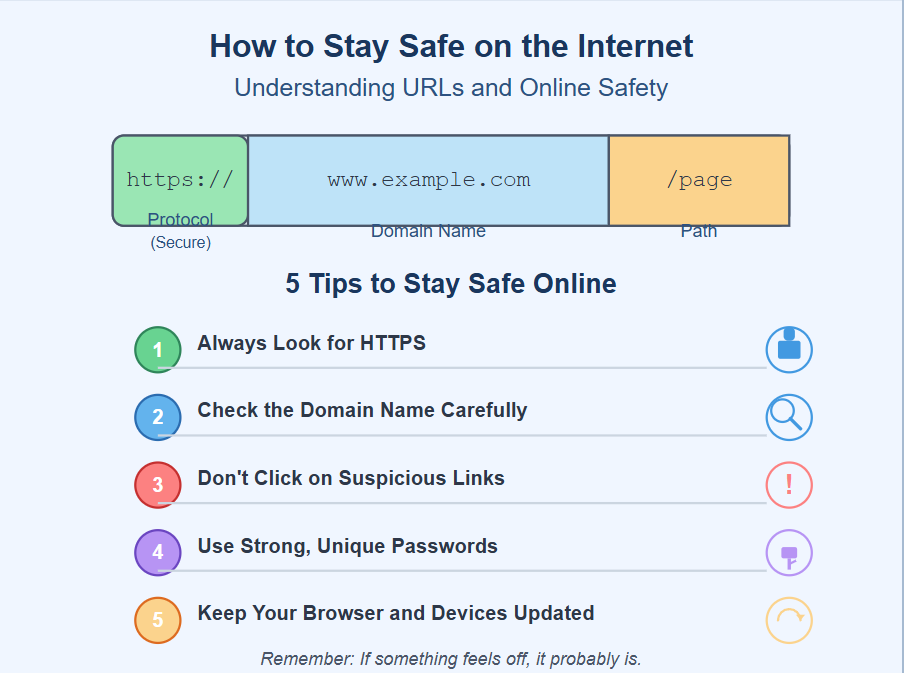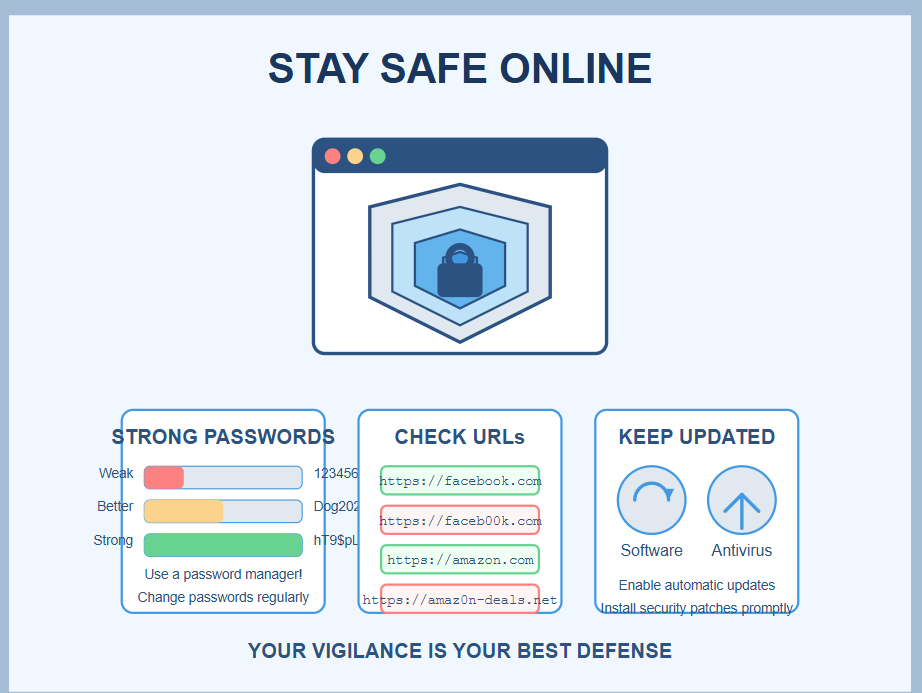
How to Stay Safe on the Internet: Understanding URLs and Online Safety
In today’s digital age, we spend a lot of time online—shopping, reading news, checking social media, and more. But with the convenience of the internet comes the risk of scams, phishing, and identity theft. One of the most important steps you can take to protect yourself is to understand how URLs work and how to spot suspicious ones.
What Is a URL?
A URL (Uniform Resource Locator) is the web address you type into your browser to visit a website. For example:https://www.example.com
It has several parts:
https://— The protocol (HTTPS is secure, HTTP is not).www.example.com— The domain name./page— The path to a specific page.
5 Tips to Stay Safe Online
1. Always Look for HTTPS
Secure websites use https:// in the URL. The “S” stands for Secure. This means your data is encrypted when sent to the website. Never enter sensitive info (like passwords or credit card numbers) on sites that use only http://.
2. Check the Domain Name Carefully
Scammers often create fake websites that look almost identical to real ones. Look out for small changes, like:
www.faceb00k.cominstead ofwww.facebook.compaypa1.cominstead ofpaypal.com
These are called phishing sites, and they aim to steal your information.
3. Don’t Click on Suspicious Links
Be cautious when clicking links in emails, texts, or social media messages—especially if you don’t know the sender. Hover over the link to preview the full URL before clicking. If it looks strange or unfamiliar, don’t open it.
4. Use Strong, Unique Passwords
Use different passwords for different websites, and avoid using personal information. Consider using a password manager to help you remember them.
5. Keep Your Browser and Devices Updated
Updates often include important security fixes. Set your browser and device to update automatically to stay protected.
Final Thoughts
Online safety starts with awareness. By understanding how URLs work and staying alert for warning signs, you can protect yourself from scams and keep your personal information secure.
Remember: If something feels off, it probably is. Take a moment to double-check before clicking.

